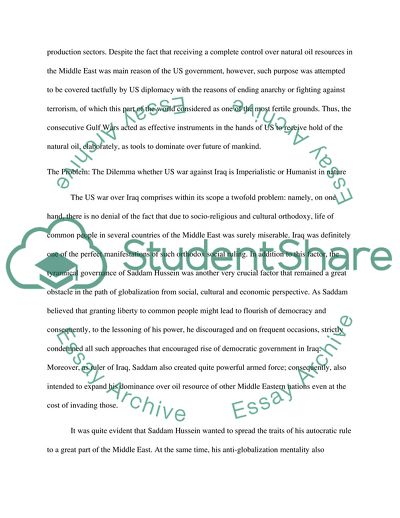Cite this document
(U.S. War on Iraq for Oil Coursework Example | Topics and Well Written Essays - 2750 words, n.d.)
U.S. War on Iraq for Oil Coursework Example | Topics and Well Written Essays - 2750 words. https://studentshare.org/history/1738930-us-war-on-iraq-for-oil
U.S. War on Iraq for Oil Coursework Example | Topics and Well Written Essays - 2750 words. https://studentshare.org/history/1738930-us-war-on-iraq-for-oil
(U.S. War on Iraq for Oil Coursework Example | Topics and Well Written Essays - 2750 Words)
U.S. War on Iraq for Oil Coursework Example | Topics and Well Written Essays - 2750 Words. https://studentshare.org/history/1738930-us-war-on-iraq-for-oil.
U.S. War on Iraq for Oil Coursework Example | Topics and Well Written Essays - 2750 Words. https://studentshare.org/history/1738930-us-war-on-iraq-for-oil.
“U.S. War on Iraq for Oil Coursework Example | Topics and Well Written Essays - 2750 Words”. https://studentshare.org/history/1738930-us-war-on-iraq-for-oil.


